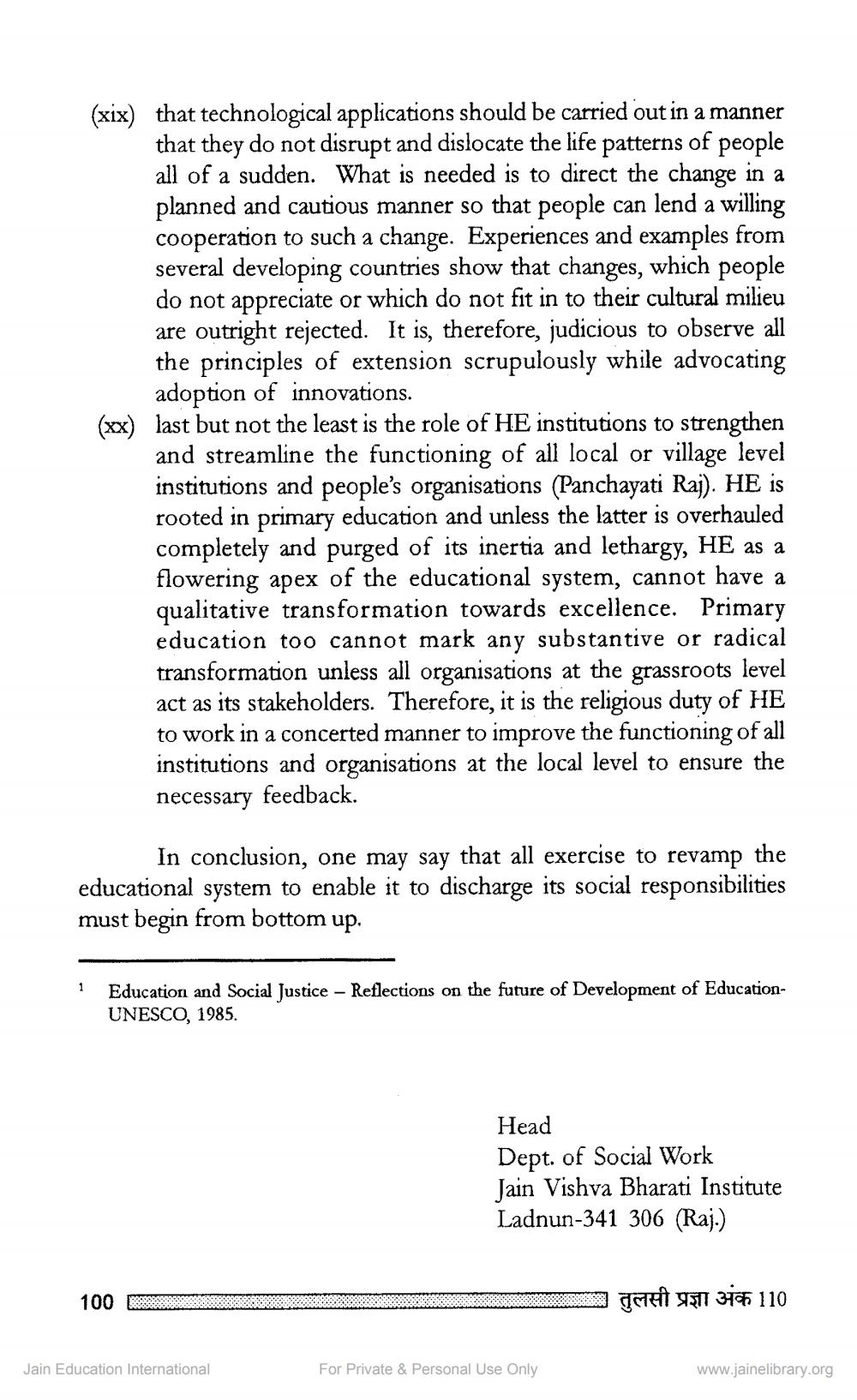________________
(xix) that technological applications should be carried out in a manner that they do not disrupt and dislocate the life patterns of people all of a sudden. What is needed is to direct the change in a planned and cautious manner so that people can lend a willing cooperation to such a change. Experiences and examples from several developing countries show that changes, which people do not appreciate or which do not fit in to their cultural milieu are outright rejected. It is, therefore, judicious to observe all the principles of extension scrupulously while advocating adoption of innovations.
1
(xx) last but not the least is the role of HE institutions to strengthen and streamline the functioning of all local or village level institutions and people's organisations (Panchayati Raj). HE is rooted in primary education and unless the latter is overhauled completely and purged of its inertia and lethargy, HE as a flowering apex of the educational system, cannot have a qualitative transformation towards excellence. Primary education too cannot mark any substantive or radical transformation unless all organisations at the grassroots level act as its stakeholders. Therefore, it is the religious duty of HE to work in a concerted manner to improve the functioning of all institutions and organisations at the local level to ensure the necessary feedback.
In conclusion, one may say that all exercise to revamp the educational system to enable it to discharge its social responsibilities must begin from bottom up.
Education and Social Justice - Reflections on the future of Development of EducationUNESCO, 1985.
100
Jain Education International
Head
Dept. of Social Work Jain Vishva Bharati Institute Ladnun-341 306 (Raj.)
For Private & Personal Use Only
तुलसी प्रज्ञा अंक 110
www.jainelibrary.org




